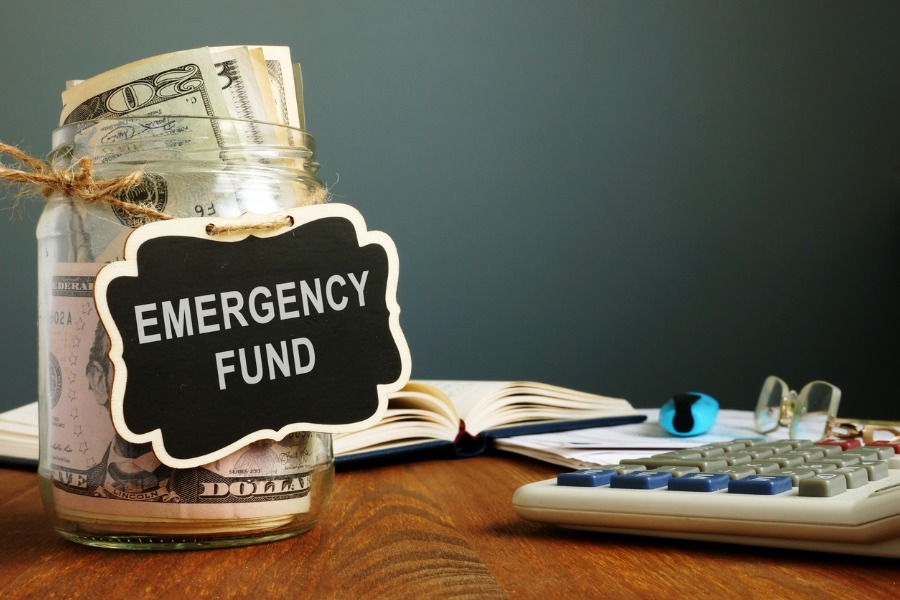

Being able to draw on emergency savings has been vital for many Americans in recent years during the pandemic and cost-of-living crisis. But many are without this important lifeline.
The percentage of people without anything saved for a rainy day has reached a six-year high while those who do have savings do not feel they are adequate, leaving potentially millions of households exposed to unexpected expenses or the loss of work.
The findings of a new survey from Bankrate.com include that 27% of respondents have no emergency savings and 59% of those who do are not comfortable with what they have accrued including almost one third who are very uncomfortable. Nine in ten said that being comfortable would mean having enough saved for at least six months of expenses.
Around three in ten said that their savings would not last three months, while 28% have enough saved for six months of expenses. Those who have enough saved for between three and five months is just 16%, the lowest since 2016.
“Emergency savings has long been the Achilles heel of Americans’ personal finances, and this poll is the latest evidence,” said Bankrate chief financial analyst Greg McBride, CFA. “We see more individuals with no emergency savings, a level of discomfort from 2022-2024 that is markedly higher than where it was from 2018-2021, and millions of households far short of the savings they would need to feel comfortable.”
The survey was conducted in May 2024 among a sample of 1,032 respondents.
While not necessarily from emergency savings, last month’s Survey of Household Economics and Decision Making from the Federal Reserve found that the share of Americans who can cover a surprise expense of $400 using cash or equivalent was little changed from the previous year — about two-thirds.

Americans with life insurance coverage are far more likely to feel assured of their loved ones' future, though myths and misconceptions still hold many back from getting coverage.

Mounting regulatory pressures and proposed taxes are putting a strain on higher education institutions, forcing renewed focus on liquidity management and the secondary market for private equity.

Poll of 1,500 retirement plan investors finds 45% interested in private equity and private debt, with more than three-quarters saying they'd ramp up contributions as a result.

Most firms place a limit on advisors’ sales of alternative investments to clients in the neighborhood of 10% a customer’s net worth.

Those jumping ship include women advisors and breakaways.
Orion's Tom Wilson on delivering coordinated, high-touch service in a world where returns alone no longer set you apart.
Barely a decade old, registered index-linked annuities have quickly surged in popularity, thanks to their unique blend of protection and growth potential—an appealing option for investors looking to chart a steadier course through today's choppy market waters, says Myles Lambert, Brighthouse Financial.
